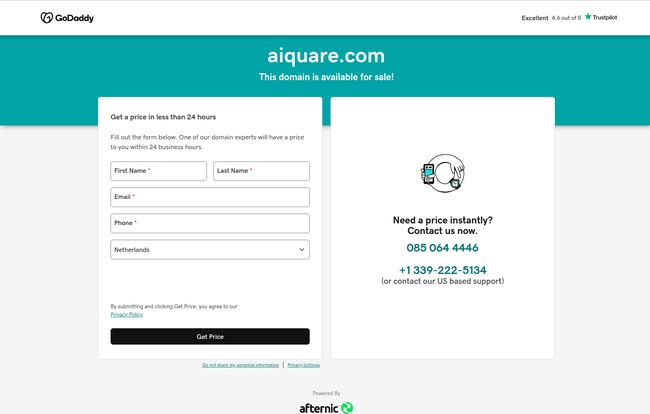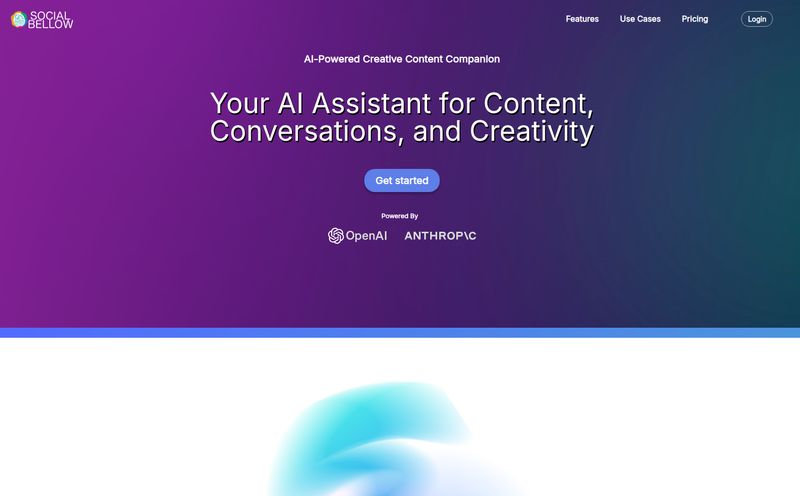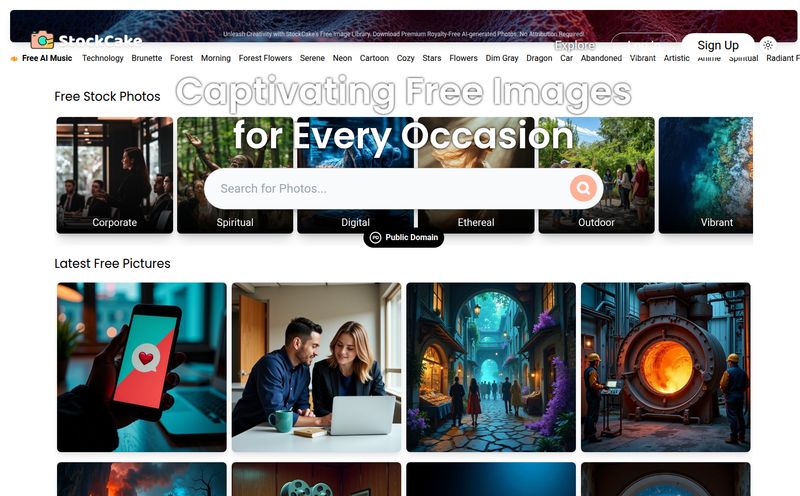If you're anything like me, you've got a digital graveyard of side projects. You know the ones. That weekend project that turned into a month-long obsession. The tool you built to solve a personal problem, which now sits gathering dust in a private GitHub repo. For developers, especially in the AI space, these projects are often brilliant, innovative... and homeless.
We build them, we love them, but we don't always have the time, resources, or frankly, the desire to scale them into a full-blown business. So they sit. A testament to our creativity, but not much else. A while back, I stumbled upon a concept that was supposed to solve this exact problem: a platform called AIquare.
The idea was simple, almost elegant in its clarity. It was meant to be a dedicated marketplace for buying and selling AI projects. A place where a developer’s clever chatbot or a unique data-processing model could find a new home, a new purpose, and maybe even make its creator some money. It sounded perfect. Too perfect, maybe.
The Promise of an AI Adoption Agency
Let's be real, the journey from a working AI prototype to a scalable, market-ready product is a brutal one. It’s a chasm that swallows up countless amazing ideas. AIquare was positioned as the bridge over that chasm.
For developers, it was a golden ticket. An exit strategy that didn’t involve the soul-crushing grind of seeking VC funding or trying to become a marketer overnight. You build something cool, you prove it works, and you sell it to someone who has the resources to take it to the next level. It's a way to get rewarded for your innovation without having to build an entire company around it.
For businesses, the proposition was just as juicy. Why spend six months and a hefty budget trying to build an AI solution from scratch when you could acquire a proven, innovative project for a fraction of the cost? It’s like an M&A strategy for the little guy. You could snap up niche AI tools to integrate into your existing products, or acquire a foundational model to build a new service upon. It was meant to be a flea market for the future, where one company’s forgotten experiment could become another’s cornerstone technology. A real win-win.
The whole concept felt like an adoption agency for brilliant but abandoned AI puppies. A noble cause, right?
So, Where Did AIquare Go?
This is where our story takes a turn. Full of curiosity, I went to check out aiquare.com recently. And I was greeted not by a bustling marketplace of AI wonders, but by a cold, sterile landing page from GoDaddy.
The domain is for sale.

Visit AIquare
Yep. The bridge is out. The adoption agency has closed its doors. The digital real estate that was once home to this brilliant idea is now just another plot of land for sale on the internet superhighway. It’s a bit of a gut punch, isn't it? Seeing a great idea just... vanish.
What happened? Honestly, we can only speculate. The AI space is moving at a breakneck pace, a veritable gold rush where today’s hot new thing is tomorrows forgotten relic. Maybe the founders ran out of runway. Perhaps they couldn’t attract a critical mass of buyers and sellers to make the marketplace viable. That’s a classic chicken-and-egg problem for any platform. Or maybe, just maybe, they were acqui-hired, and the platform itself was absorbed into a larger company, with the brand left behind.
Whatever the reason, the demise of AIquare serves as a cautionary tale. A great idea is not enough. Execution, timing, and a bit of luck are the other ingredients, and it seems AIquare came up short on one of them.
The Unsolved Problem Lingers On
Just because AIquare is gone doesn't mean the problem it tried to solve has disappeared. If anything, it's more relevant than ever with the explosion of generative AI tools and projects. That graveyard of side projects is only getting bigger. So, if you're a developer with an AI project to sell today, where do you go?
The landscape is a bit fragmented. You have general-purpose marketplaces like Flippa, where websites and apps are sold, but they aren't specifically tailored for AI projects. Then you have platforms like Acquire.com (formerly MicroAcquire), which have become the go-to for selling SaaS startups. While you could certainly list an AI project there, it's a platform built more for established businesses with recurring revenue, not necessarily pre-revenue projects or standalone models. Some have found success on communities like Indie Hackers or by simply building in public on X (formerly Twitter), attracting inbound interest organically.
None of these are a perfect one-to-one replacement for what AIquare promised. The dream of a dedicated, specialized bazaar for AI innovation remains, for now, just a dream.
A Lesson from a Ghost Platform
The story of AIquare is more than just a tale of a failed startup. It’s a snapshot of the current AI ecosystem. It's volatile, incredibly fast-paced, and littered with both spectacular successes and quiet failures. For every AI unicorn, there are a thousand ghost platforms like AIquare.
It highlights the immense difficulty of not just building AI, but building a sustainable business around AI. It’s a good reminder for all of us in the industry that the hype is just one part of the equation. Finding a genuine, painful problem and providing a durable solution is what separates the fleeting ideas from the businesses that last.
I, for one, hope someone else picks up this torch. The need is there. The developers are building. The buyers are looking. We just need that bridge. Maybe the next one will be built to last.
Frequently Asked Questions about AIquare
- What was AIquare supposed to be?
- AIquare was conceptualized as a specialized online marketplace for developers to sell their AI projects and for businesses to acquire innovative AI solutions. The goal was to provide an exit opportunity for developers and an efficient acquisition channel for companies.
- Why can't I access the aiquare.com website?
- The domain name aiquare.com is currently listed for sale on GoDaddy. This indicates that the original project is no longer active and has relinquished control of the domain.
- Are there any alternatives to AIquare for selling an AI project?
- Yes, though none are a perfect replacement. You can explore general marketplaces like Flippa, startup acquisition platforms like Acquire.com, or try to gain traction in communities like Indie Hackers. The best choice depends on the maturity and type of your project.
- What is the benefit of buying a small AI project?
- Acquiring a small AI project can save a company significant time and R&D costs. It allows them to quickly integrate new technology, test a new market, or acquire unique talent and intellectual property without building from the ground up.
- Is selling an AI side project difficult?
- It can be. The main challenges are finding the right buyer, properly valuing your project (especially if it has no revenue), and handling the technical and legal aspects of the transfer. This is the friction a platform like AIquare aimed to reduce.
Conclusion
The tale of AIquare is a classic startup story of our time: a brilliant idea, a clear market need, and an uncertain fate. It's a bummer that it didn't work out, because I genuinely believe a platform like it is needed. It serves as a potent reminder that in the wild world of tech and AI, not every great idea crosses the finish line. But their ghosts often linger, pointing the way for those who come next. Here's hoping the next attempt sticks the landing.
Reference and Sources
- Flippa - General marketplace for buying and selling online businesses, apps, and domains.
- Acquire.com - A leading startup acquisition marketplace, focused on SaaS and recurring revenue businesses.
- Indie Hackers - A community for independent entrepreneurs to share their stories and projects.



